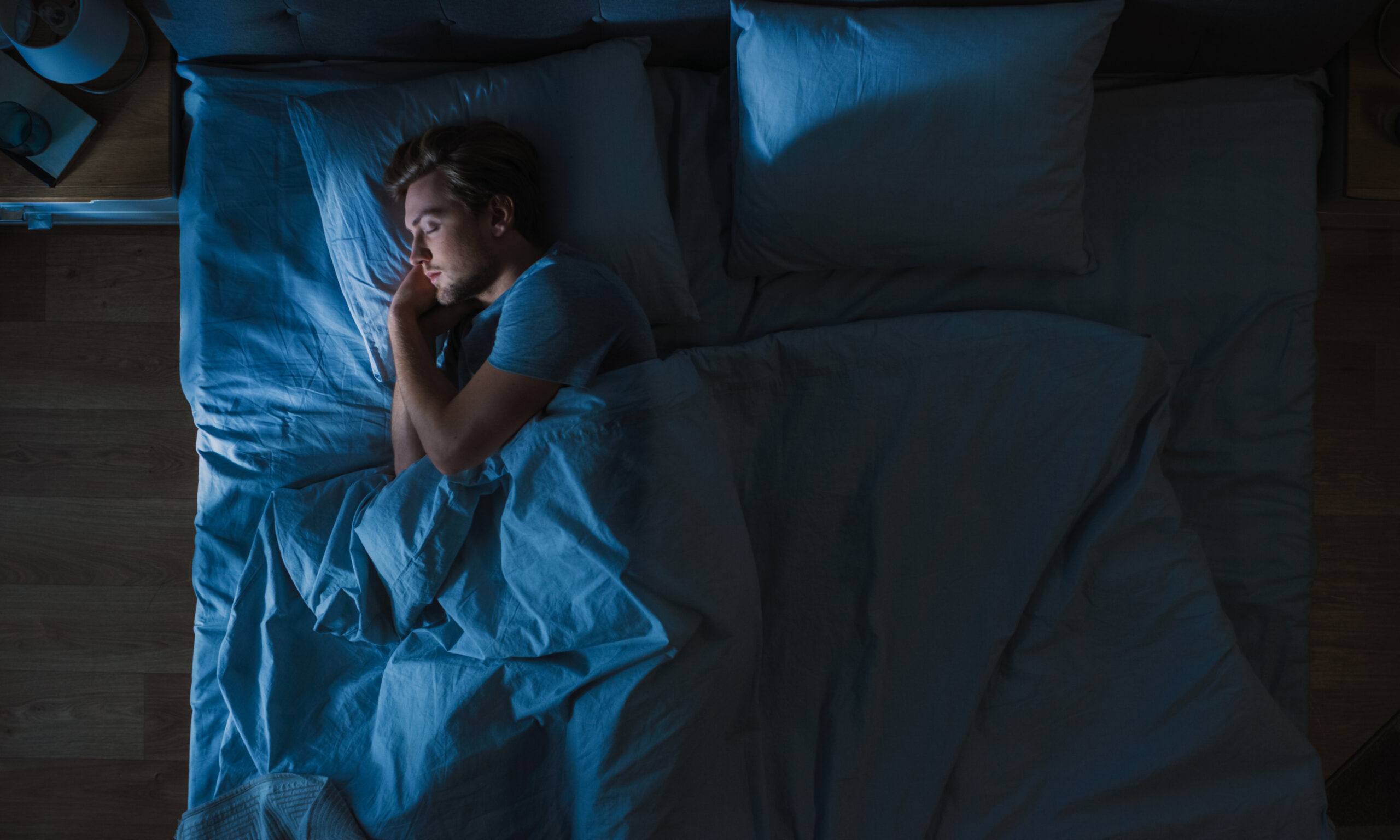Sleep is a natural part of life, but many people underestimate its importance. We know that we feel better when we get enough sleep, but most don’t understand that sleep and health, both physical and mental, are interconnected. Health can directly impact the quality of sleep, and the quality of sleep can directly impact health.
How Health Affects Sleep
Your health can have negative effects on both the amount of sleep you get and the quality of your sleep. Quality of sleep refers to how soundly you sleep without waking up frequently, so even if you’re in bed for eight hours, if you wake frequently, your quality of sleep is poor.
Many health conditions have symptoms, such as pain or frequent urination, that can make it difficult to fall asleep or can disrupt sleep. Even having a cold can make it difficult to sleep because of congestion or coughing. Mental health conditions such as anxiety and depression can also cause sleep issues, such as insomnia. Additionally, medications for some health conditions can cause sleep disruptions.
If you suffer from sleep problems due to health conditions, it’s important to speak with your doctor, who may be able to offer solutions such as sleep medications.
How Sleep Affects Health
Sleep is a necessity for our bodies to function properly. It allows the body and mind to heal and rejuvenate. Over time, poor sleep can increase the risk of many health conditions.
Obesity
Much research shows a link between poor sleep and a risk of obesity. Sleep deprivation causes hormonal imbalances, changes in metabolism, and an increased intake of high calorie foods, all of which can lead to weight gain. People who get less sleep also tend to exercise less due to fatigue.
Diabetes
Sleep deprivation has been shown to increase blood sugar levels and insulin resistance, both of which are factors in diabetes.
Heart Disease
During sleep, blood pressure decreases, therefore, sleep deprivation means that blood pressure levels are higher for longer periods of time. This can increase the risk of heart disease and stroke.
Dementia
Studies have shown a link between sleep deprivation and an increased risk of dementia, although the reasons for this are not fully understood. One theory involves a protein that our body produces naturally in the brain when we are awake. During sleep, this protein is flushed away. Without adequate sleep this protein, which is associated with dementia, can build up in the brain.
Immune System Function
Sleep deprivation can weaken the immune system, making you more susceptible to infections, illnesses, and inflammation. Chronic inflammation can lead to heart and metabolic disorders.
Cancer
Sleep deprivation has been linked to the risk of breast, prostate, and colorectal cancers due to a weakened immune system and hormonal imbalances.
Sleep Apnea
Not getting enough sleep can weaken the throat muscles, which can increase the risk of developing sleep apnea, which is characterized by interruptions in breathing during sleep.
Depression and Anxiety
Sleep deprivation can lead to anxiety and depression or can worsen the symptoms of these conditions.
Injuries
People who are fatigued are more likely to suffer injuries from car accidents, falls, or accidents at work.
How to Sleep Well
Adults should aim for at least 7 hours of sleep per night. If you have trouble sleeping, speak with your doctor first, who can try to address the cause. You can also follow some simple steps that can help you fall asleep and improve the quality of your sleep.
- Block out Light
Try to block out all light from your bedroom with blackout curtains. Lack of light can help your body to produce melatonin, which is a hormone that promotes sleep.
- Keep it quiet
Noise can be disruptive to sleep, so keep your sleep area quiet. To block out noise, you can try sleeping with a fan on.
- Get the right temperature
Keep your thermostat at a temperature that is comfortable for you. For most people, around 65 to 68 degrees is a good sleep temperature, but find what works for you.
- Have a set sleep and wake time
Establishing a rhythm by going to sleep and waking up at the same time every day can increase the quality of your sleep.
- Relax
Do something relaxing before bedtime, such as reading, taking a bath, or meditating.
- Unplug
Stay off of your electronic devices for at least an hour before bed. They are not only distracting, but the light from the screen can interfere with your body’s ability to produce melatonin.
- Cut the caffeine and alcohol
Caffeine can keep you from falling asleep and alcohol can disrupt your sleep. Don’t have caffeine after around 2 pm and avoid alcohol in the two hours before bedtime.
- Stay comfortable
Investing in a good mattress and pillow can make a big difference in your sleep quality.
- Try supplements
Supplements like melatonin or chamomile may help you fall asleep faster and sleep better.
- Exercise daily
A good exercise routine can promote a good sleep routine. Just don’t exercise close to bedtime.
In Closing
It can’t be emphasized enough how important sleep is to both your physical and mental health. By following some simple steps, you can improve your sleep quality and live a healthier life. The medical professionals at Health Service Alliance are also here to help. We can address the causes of your sleep issues and offer solutions that can help you to get your sleep routine on track. Give us a call today.




